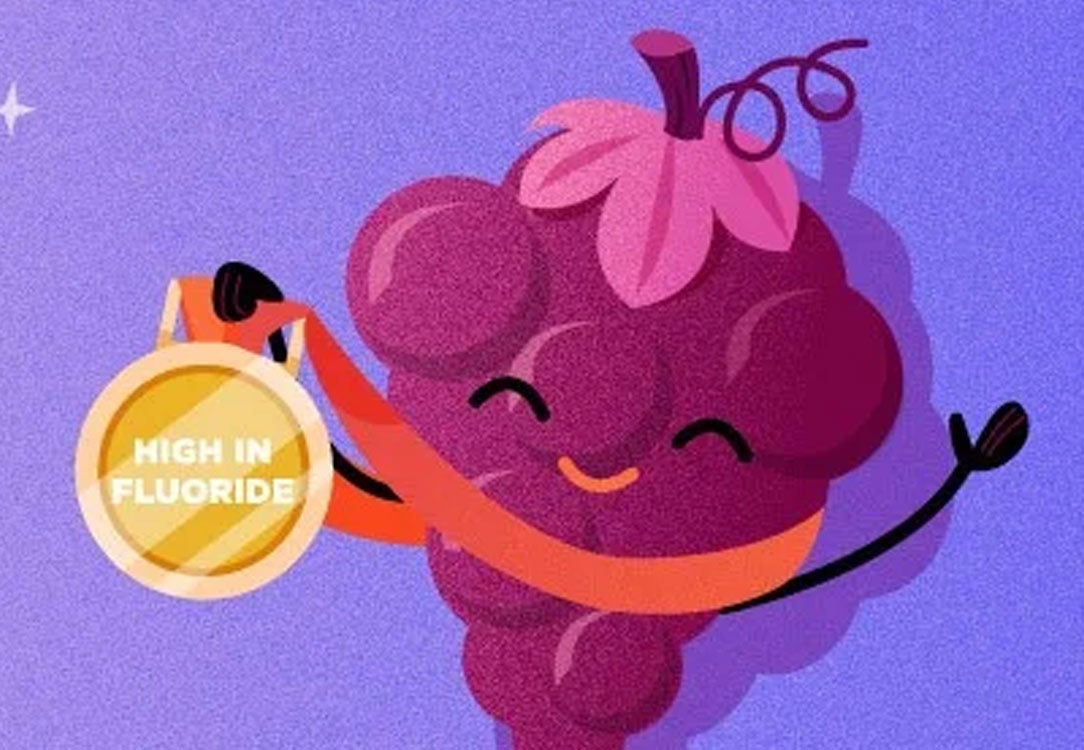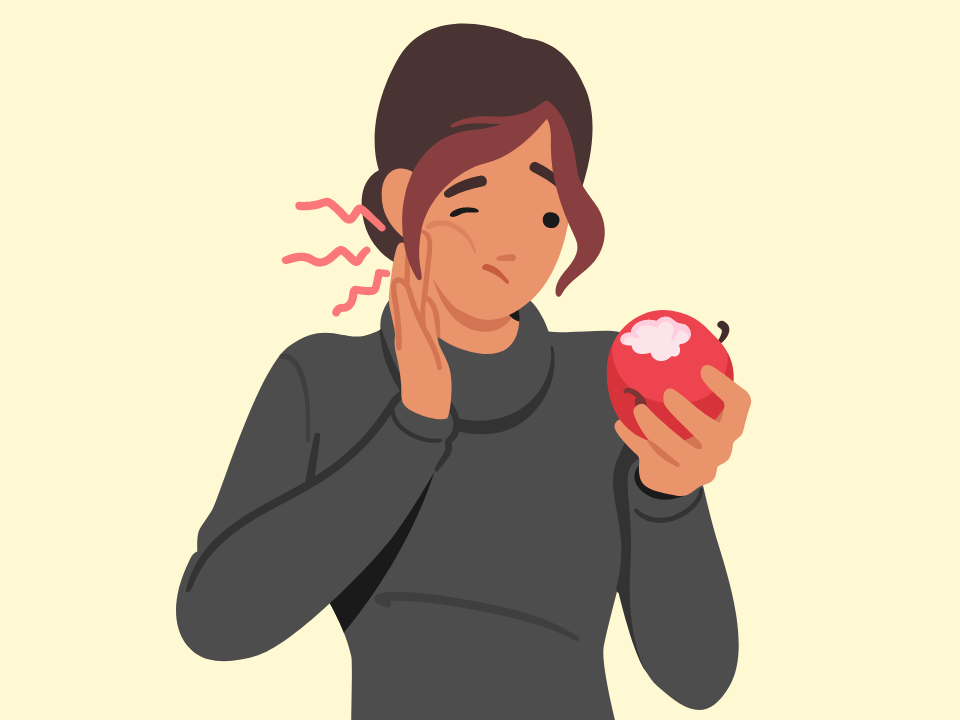Have you ever taken a moment at the end of a long day to sit down with a bowl of your favorite ice cream, only to be greeted with searing pain at the first bite? As you stare longingly at the full bowl, now abandoned, you may find yourself wondering—why are my teeth so sensitive? Tooth sensitivity, or “dentin hypersensitivity,” is a frustratingly common ailment that can significantly impact your daily life.
There are a variety of issues to explore when it comes to what causes sensitive teeth and how to help sensitive teeth. Sensitivity can increase gradually over time or happen all at once, such as when you have one tooth sensitive to hot and cold. Whether the pain came on suddenly or gradually, you’re probably very interested in how to stop sensitive teeth pain immediately. It’s important to dig deep and find the sensitive teeth causes before exploring treatment options to ensure the problem is truly resolved.
What Causes Sensitive Teeth?
Sensitive teeth are usually caused by the gradual wearing down of the layer of enamel that protects the teeth. However, structural damage and other extenuating circumstances can also cause sensitivity, usually only in the specific teeth where you’re experiencing pain.
If you have ever asked yourself, “Why are my teeth sensitive?” while lamenting the loss of enjoying your food and drink without searing pain, you might want to consider the following causes of tooth sensitivity:
Yes, brushing your teeth is clearly very important. And yes, it’s good to be passionate about getting all that food and bacteria off your teeth before it leads to plaque and tartar and a plethora of unpleasant maladies, but be sure to reign in that passion when it comes to brushing too hard. Side-to-side brushing with a lot of pressure can cause the gum line to recede and actually wear the enamel right off your teeth, exposing the deeper, more sensitive layers of the teeth.
Pro Tip: While you’re in the mood to make positive changes, try brushing in tiny circles or at a 45-degree angle to the gumline – small changes can make a big difference when it comes to sensitivity!
Again, it may seem like a bristly, hard toothbrush is the key to effectively cleaning your teeth. However, that hard toothbrush can cause more harm than you think when it comes to protecting the enamel on your teeth. Instead, pick up a soft or even an extra soft toothbrush next time you’re at the store – you’ll be glad you did when you’re sipping your next cup of coffee and have zero tooth sensitivity to hot liquids!
This can be a tough pill to swallow, but reducing your consumption of certain acidic foods and drinks you might love can pay off in the long run when you’re enjoying a bowl of ice cream with no cold sensitivity at all. Acid can wear away the enamel on your teeth, inevitably leading you to look for tooth sensitivity treatment. Cut back on the oranges, wine, sodas, and other goodies that might lead to the exposure of more sensitive layers of your teeth underneath the enamel.
If you notice you have a single tooth that is sensitive to cold or wonder, “Why are my teeth sensitive all of a sudden?” —it’s time to take action. A cracked, broken, or chipped tooth can lead to tooth sensitivity and likely will result in even more pain if left untreated. Old fillings or crowns can also leave your teeth exposed and vulnerable, causing teeth to become sensitive—a sure sign that it’s time to visit your dentist.
If you struggle with teeth grinding, you’re not alone. However, it’s important to seek help for this condition, as you can experience many detrimental side effects as a result. When it comes to sensitivity, grinding your teeth wears down the surfaces of your teeth and can erode the enamel that is so important when it comes to protecting the lower layers of teeth.
Cosmetic Treatments and Recent Dental Work
Who doesn’t love a beautiful, pearly white smile? But take care with bleaching or other whitening treatments, as they can leave the teeth feeling sensitive afterward. If you’ve recently visited the dentist for cosmetic or structural work, keep in mind that you may experience temporary sensitivity as a result.
Self-evaluation can certainly help identify the causes of sensitivity. Still, the best way to diagnose the true cause is with a thorough examination by a dental professional who can let you know how to treat sensitive teeth.
Symptoms of Sensitive Teeth
Symptoms of tooth sensitivity can vary based on each person’s unique situation. If you have sensitivity due to recent dental work or a crack in a tooth, the pain will likely be triggered by something different than someone who has sensitivity due to hard brushing.
Common symptoms include sensitivity to cold and/or hot food and drink, cold air, contact with teeth when brushing, certain mouth rinses or toothpaste, and even sweet, sour, or acidic foods and beverages.
Teeth are Sensitive to Hot & Cold
The nerve system of the teeth is housed deep below the surface of the tooth. The fewer layers of protection you have, the more likely you will experience sensitivity – especially sensitivity to hot and cold. If hot and cold sensitivity occurs gradually, it’s likely due to the enamel wearing away. However, if you develop a shooting or searing pain that comes on suddenly, you may have a more serious problem. Structural damage to teeth can allow heat and cold to penetrate to the inner part of the tooth, causing significant nerve pain. No matter the cause of your sensitivity to hot and cold, it’s best to see a dentist as soon as possible to determine which tooth sensitivity treatment is right for you.
Tooth Sensitivity Treatment Options
If you’re experiencing these painful symptoms of tooth sensitivity, it’s like you’re ready to find out how to get rid of sensitive teeth. There are natural remedies for sensitive teeth and professional methods performed by your dentist, both of which can prove effective in combating sensitivity.
How To Reduce Teeth Sensitivity
Teeth sensitivity could also be caused by damaged teeth and gums because of poor oral hygiene or trauma to the mouth. Teeth that are cracked, chipped, and broken could be very sensitive to hot and cold liquids or foods. In addition, receding gums caused by periodontal disease could also cause sharp pain when drinking cold beverages.
Knowing how to reduce teeth sensitivity in these cases goes back to tooth health. Diligently brush your teeth in the morning and before going to bed and flossing once a day is crucial to having a healthy mouth. Never neglect your regular teeth cleaning appointments with your dentist so that any issues can be addressed. Do not hesitate to make an appointment just to discuss your tooth sensitivity with your dentist. Your dentist can restore your teeth to good health while double-checking that your daily oral hygiene care is keeping your teeth and gums healthy, reducing the chances of having teeth sensitivity.
How to Stop Sensitive Teeth
- Fix the root cause - If you have a cracked or chipped tooth, a filling that is worn out, or any other structural damage, call your dentist. Once the damage is repaired, the sensitivity should be relieved.
- Change your toothbrush – Switch to an extra-soft toothbrush to give your teeth some relief.
- Use toothpaste for sensitive teeth.
- Choose food and drink wisely – If you enjoy acidic foods and drinks, it may be time to greatly reduce your intake or even cut them out altogether. The acid will slowly wear your enamel away with each gulp of soda or bite of an orange, so be mindful of your choices.
Home Remedies for Sensitive Teeth
If you are suffering from sensitive teeth, you may have many solutions in your house that can be used to relieve the pain. Home remedies for sensitive teeth may not offer long-term solutions but can certainly reduce pain and help fight bacteria that could be causing your teeth to be sensitive. To reduce sensitivity pain and boost general oral health, use an antiseptic or product with antibacterial properties to kill bacteria in your mouth that could be causing sensitivity like:
- Rinse mouth with warm saltwater
- Hydrogen peroxide water rinse
- Swishing with honey water
- Dabbing a crushed garlic clove around your gums
Anti-inflammatories can also help reduce sensitivity.
- Massage turmeric into the gums and around the teeth
- Swish unsweetened green tea around in your mouth before drinking this antioxidant-rich drink
What Helps Sensitive Teeth?
If you are struggling to know what helps sensitive teeth, identifying what is causing your tooth sensitivity in the first place could make a real difference. The answer could lie in your daily routine. Brushing too hard or using a toothbrush with stiff or harder bristles could be irritating your gums. Also, some kinds of toothpaste may have ingredients that can cause sensitivity in some people. Switching to a toothpaste that is promoted to help with sensitivity may greatly reduce your problem. In addition to your oral hygiene routine, avoiding certain acidic foods and beverages can also help sensitive teeth. Tomatoes, pickled products, and sodas are highly acidic — giving up these foods and beverages could be what helps your sensitive teeth feel better.
When Should I be Worried About My Sensitive Teeth?
Tooth pain is never pleasant, and you’re probably looking for a sensitive teeth remedy no matter what level of pain you’re experiencing. However, it’s important to pay attention to your body when it’s trying to tell you something with pain signals. If you experience sudden sharp pain, unmanageable pain, or pain that lasts even when there aren’t triggers for sensitivity, it’s time to be concerned – call a dentist for an appointment as soon as possible.
Find a Dentist Near You to Treat your Sensitive Teeth
Sensitive teeth truly can interrupt the rhythms of your daily life, robbing you of life’s simple pleasures like eating and drinking the things that you love. If you’re struggling with sensitive teeth, take action – whether you try home remedies or visit a dentist right away, it’s best to address the issue before it worsens. Good oral health is closely linked to your overall health, so it’s important to keep your mouth in the healthiest shape possible. If you are on the search for a new dentist and asking yourself where to find a dentist near me, use the Smile Generation Find a Dentist tool to find a capable professional near you that knows just how to fix sensitive teeth.
Find your trusted, local dentist today!
- WebMD. (n.d.). Tooth sensitivity: Causes, treatments, and prevention. WebMD. https://www.webmd.com/oral-health/tooth-sensitivity
- Mayo Clinic. (n.d.). Sensitive teeth: Causes and remedies. Mayo Clinic. https://www.mayoclinic.org/healthy-lifestyle/adult-health/expert-answers/sensitive-teeth/faq-20057854
- Healthline. (n.d.). Sensitive teeth: Symptoms, causes, and treatment. Healthline. https://www.healthline.com/health/sensitive-teeth#Symptoms-of-sensitive-teeth
- Medical News Today. (2019, March 8). Tooth sensitivity: Causes, treatments, and prevention tips. Medical News Today. https://www.medicalnewstoday.com/articles/324731
- Dental Board of California. (n.d.). Dental materials fact sheet. Dental Board of California. https://www.dbc.ca.gov/formspubs/pub_dmfs_english_webview.pdf
Smile Generation blog articles are reviewed by a licensed dental professional before publishing. However, we present this information for educational purposes only with the intent to promote readers’ understanding of oral health and oral healthcare treatment options and technology. We do not intend for our blog content to substitute for professional dental care and clinical advice, diagnosis, or treatment planning provided by a licensed dental professional. Smile Generation always recommends seeking the advice of a dentist, physician, or other licensed healthcare professional for a dental or medical condition or treatment.








